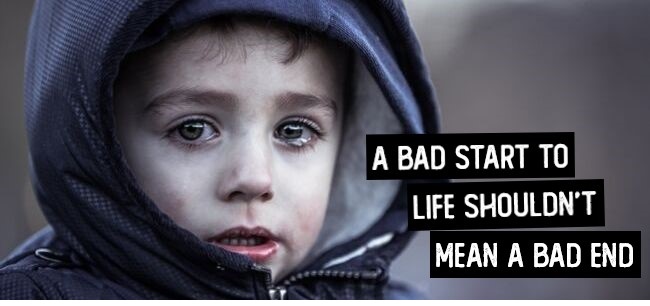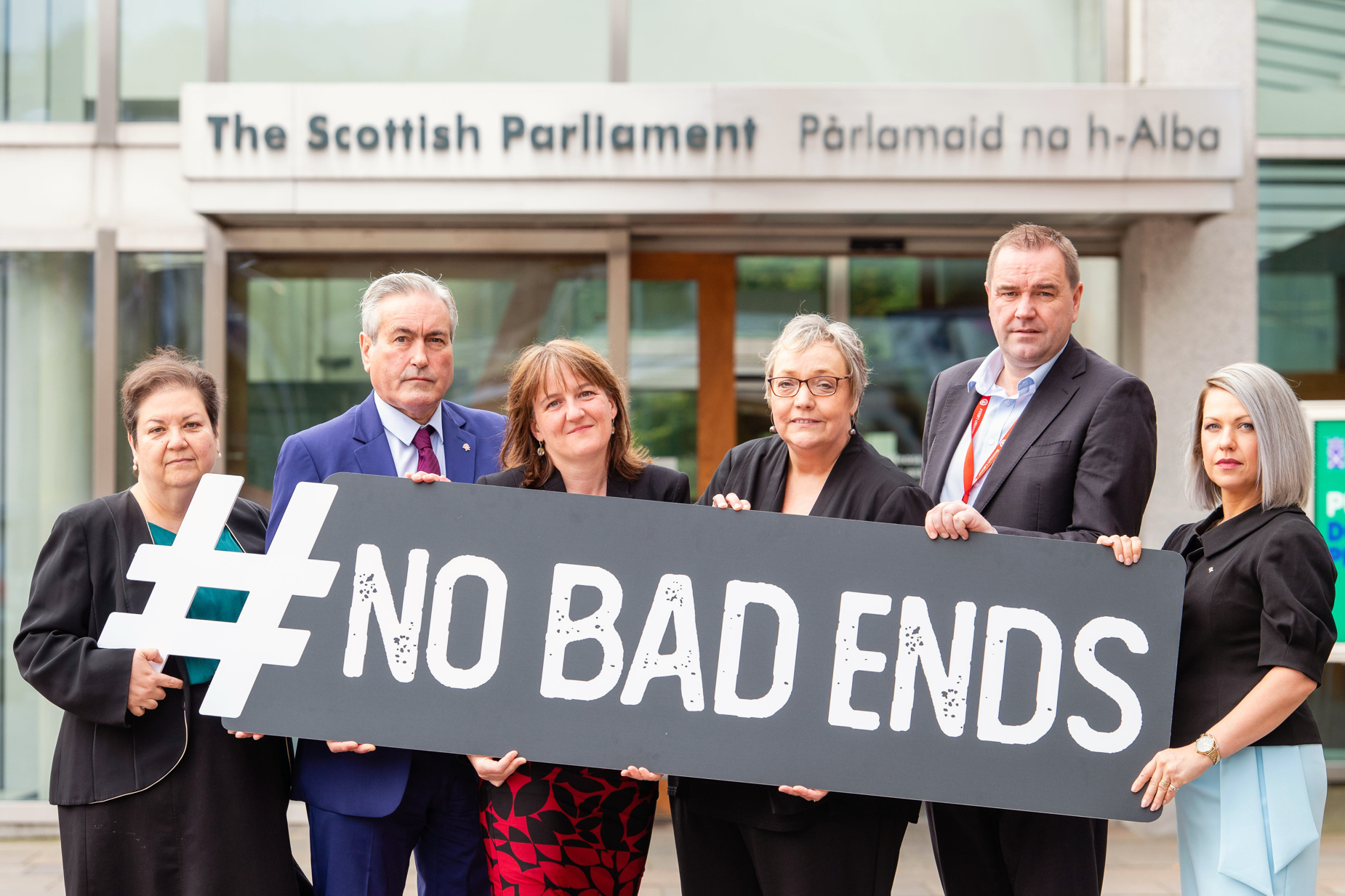New campaign launches: A bad start shouldn’t mean a bad end

New research commissioned by Aberlour Child Care Trust has found that people from Scotland’s most deprived communities are three times more likely to die before they reach their 25th birthday.
The research was carried out by Dr Morag Treanor, Professor of Child and Family Inequalities at Edinburgh’s Heriot-Watt University, and is the first to focus on the impact deprivation can have on deaths in young people. The findings have prompted Aberlour Child Care Trust to launch an urgent fundraising campaign carrying the message that “A Bad Start Shouldn’t Mean a Bad End“.
SallyAnn Kelly, CEO, Aberlour Child Care Trust commented: “This research makes for a really shocking read. We know that in order to break this cycle of deprivation we need to get to Scotland’s young people early. We are currently supporting 7,500 vulnerable children and young people across Scotland, but we know that there are thousands more that urgently need our help.”
Speaking on BBC Radio Scotland’s Good Morning Scotland programme, SallyAnn said that life expectancy should not depend on the postcode you were born into.
Dr Morag Treanor said: “What we wanted to do was understand the impact deprivation has on life expectancy, specifically in young people. I was surprised just how difficult it was to find the data I needed to complete this research, and I’ve discovered that a study like this, focusing on deaths in young people under the age of 25 across Scotland, simply hasn’t been undertaken before. The results of the research really couldn’t paint a clearer message and underline the massive inequality between rich and poor in this country.”
Scottish Parliament launch

Launching the campaign outside the Scottish Parliament this morning. SallyAnn Kelly was joined by MSPs from across Scotland’s political parties. She added: “Aberlour knows the real and proven difference that our services make to the lives of children and young people in Scotland’s most deprived communities, and we are asking the Scottish public to help us continue to deliver these vital services today. Looking ahead to the future, it’s time for a conversation about how we end the unacceptable consequences of poverty in this country. We need a political response that meets the needs of vulnerable young people and matches the generosity and support of Scotland’s people.”
Aberlour Child Care Trust is calling for:
- A commitment from the Scottish Government to a transitional fund that will support local authorities to deliver early intervention family support services, as well as continue to provide specialist support for children and families most affected by poverty and inequality.
- A commitment from the Scottish Government and public authorities to develop a child wellbeing approach to budget setting and economic planning that ensures public spending prioritises child wellbeing.
- A commitment from the business sector to provide quality, secure, flexible and family-friendly employment, ensuring jobs and income levels that enable families to thrive, not just survive.
In addition to these structural measures, Aberlour is calling on supporters and members of the public to back its campaign by making a regular donation to the charity so that young people can have a future and the opportunity to thrive.
Morgan’s story:
Morgan had a difficult childhood growing up in Govan, but her story is an example of how, with Aberlour’s help, she was able to turn her life around: “I moved to Govan when I was a few months old, and there were difficulties in my home even then. As I got older my friends were drinking, taking drugs and getting involved in gangs. I started skipping school, getting bad grades and none of my teachers seemed to care. I guess that’s what they expected from a girl like me. One night I was walking home and got injured by a bottle thrown at me by a gang of young people fighting. That was when I decided to make a change.
“I started going along to the Aberlour youth club every week and met Johnny and Julie who helped me believe I could do something different with my life. With their support, I changed school, worked really hard, and passed my Highers. My teachers said I had the grades to go to university, and I got in to study law! Sometimes I think about what my life would be like without Aberlour, whether I’d be on the streets taking drugs, addicted to alcohol, or worse – in prison or dead.
“But thanks to Aberlour, I’m positive about what the future holds. I want to specialise in family law. Once I graduate, I’m hoping to work with Aberlour and help young people in similar situations to me turn their lives around. And I’ll do it too. I know I will.”
Johnny Hendry, Youth Worker at Aberlour’s Youthpoint Service in Govan, said: “A lot of young people we work with come from chaotic backgrounds, their parents have mental health problems, drug or alcohol addictions, and many are living in poverty.
“What young people in these situations need is somebody that’s going to listen to them, believe in them, and support them. When you help a young person like Morgan change the path they are on for the better, it is so rewarding.
“But for every young person we help, there are countless others right across Scotland that we can’t reach, and it comes down to funding. That’s why, by sharing Morgan’s story, we hope the public and politicians will be moved to act and support our campaign so that together, we can ensure that a bad start in life, won’t mean a bad end.”
To donate, please click here.
The research was based on Scottish mortality records from 2011 to 2017 supplied by National Records of Scotland. The research focused on deaths due to ‘external causes’[1]. By categorising these deaths using the SIMD (the Scottish Index of Multiple Deprivation) Dr Treanor was able to compare the least and most deprived quintiles with clear and shocking results. Research full report (pdf).
This category includes traffic accidents and deaths caused by fatal accidents (such as falls); poisonings (including drug or alcohol related); suicides; drownings and fires – whether intentional or unintentional (i.e. some cases that would also be coded as drug-related or suicides); as well as deaths resulting from neglect or maltreatment, assault or violence.